Search
Remove Ads
Advertisement
Summary 
Loading AI-generated summary based on World History Encyclopedia articles ...
Search Results
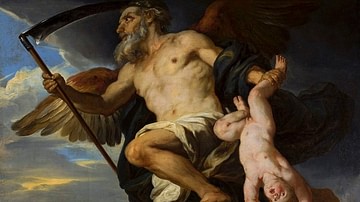
Definition
Cronus
In Greek mythology, Cronus (also spelt Kronos) is a Titan and the youngest son of Uranus (Heaven/Sky) and Gaia (Earth). He dethroned Uranus and became the world's first king, ruling over his siblings and fellow Titans. Cronus married his...
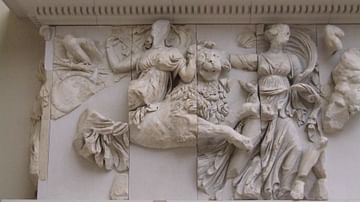
Definition
Rhea
Rhea (also spelt Rheia) is a Titan and a mother goddess in Greek mythology. She is the daughter of Gaia (Earth) and Uranus (Heaven) and the mother of the great deities of Mount Olympus. Rhea was closely associated with the Phrygian (Anatolian...
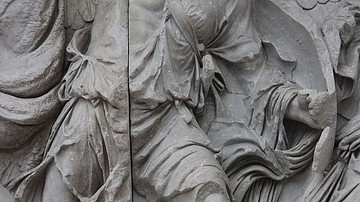
Definition
Uranus
Uranus (also spelt Ouranos) is the personification of heaven and the sky in Greek mythology. His Roman counterpart is Caelus. Gaia (Earth) gave birth to Uranus and chose him to be her equal. She lay with him, resulting in the birth of the...
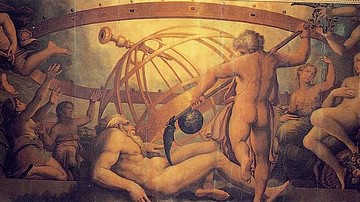
Image
The Mutilation of Uranus by Saturn (Cronus)
The Mutilation of Uranus by Saturn, showing Cronus (Saturn) castrating his father Uranus, the Greek sky god before Zeus, oil on panel by Giorgio Vasari, 16th century.
Palazzo Vecchio, Florence.
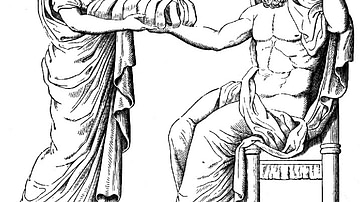
Image
Rhea & Cronus
Rhea presents Cronus with the stone disguised as a baby, Roman relief, 2nd century CE.
Capitoline Museum, Rome.
Image source: Galerie mythologique by A.L. Millin, 1811.
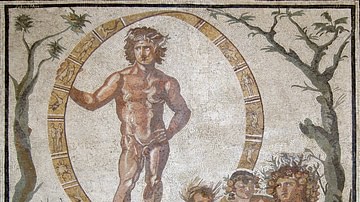
Definition
Gaia
Gaia (also Gaea or Ge) is a primordial goddess and the personification of the Earth in Greek mythology. Gaia emerged from Chaos and is considered the supreme or mother goddess by immortals and mortals alike. All gods and goddesses are descended...
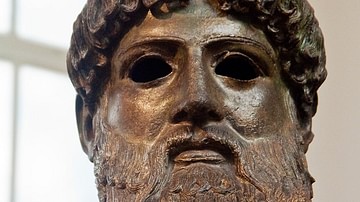
Definition
Zeus
Zeus was the king of the 12 Olympian gods and the supreme god in Greek religion. Zeus is often referred to as the Father, as the god of thunder, and the 'cloud-gatherer'. Zeus controlled the weather and offered signs and omens. Zeus generally...
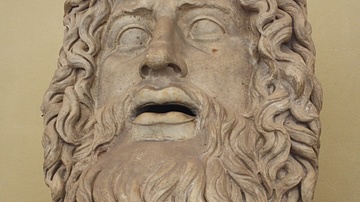
Definition
Titan
In Greek mythology the terrible and powerful Titans were those deities which preceded the Olympian gods. Never worshipped as the other gods, they nevertheless helped, through contrast, to clarify the position in the universe of the Olympian...
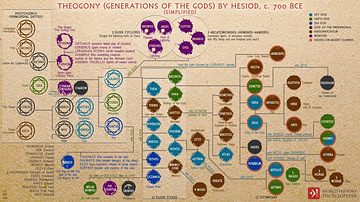
Definition
Hesiod
Hesiod (c. 700 BCE) in conjunction with Homer, is one of those almost legendary early Greek Epic poets. His works are not of comparable length to Homer's. Hesiod's poems are not epic because of their length, but because of their language...
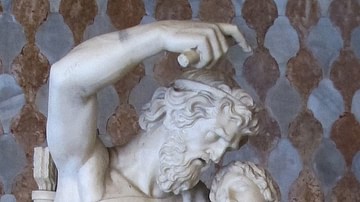
Definition
Chiron
Chiron (also spelt Cheiron) is a wise centaur (half-man, half-horse) in Greek mythology, who was a friend and tutor to many legendary Greek heroes, including Achilles and Jason. Chiron's parentage differed from the rest of the centaurs, as...